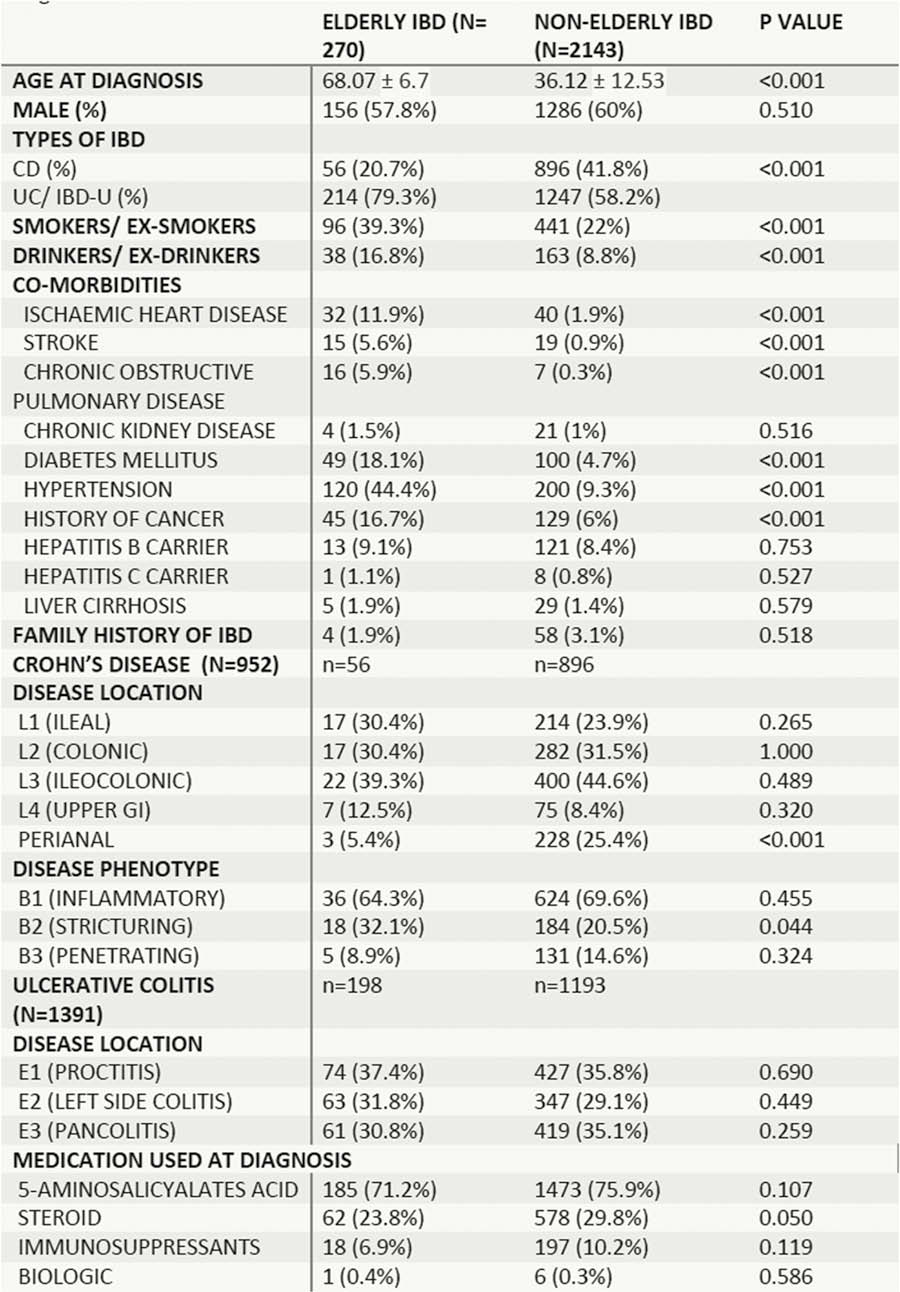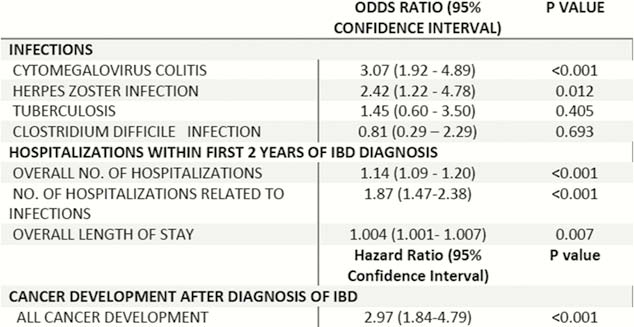P239 Elderly-onset inflammatory bowel disease is associated with higher risks of infections, cancers and hospitalisation: Results from a territory-wide Hong Kong IBD registry
J.W.Y. Mak1, L.T.C. Ho2, K. Wong1, T.Y. Cheng1, T.C.F. Yip1, W.K. Leung3, M. Li4, F.H. Lo5, K.M. Ng6, S.F. Sze7, C.M. Leung8, S.W.C. Tsang9, E.H.S. Shan10, K.H. Chan11, B.C.Y. Lam12, A.J. Hui13, W.H. Chow14, S.C. Ng1, Hong Kong IBD Registry
1Department of Medicine and Therapeutics, The Chinese University of Hong Kong, Prince of Wales Hospital, Hong Kong, Hong Kong, China, 2Department of Medicine, Imperial College London, London, UK, 3Department of Medicine, University of Hong Kong, Hong Kong, Hong Kong, China, 4Department of Medicine and Geriatrics, Tuen Mun Hospital, Hong Kong, Hong Kong, China, 5Department of Medicine and Geriatrics, United Christian Hospital, Hong Kong, Hong Kong, China, 6Department of Medicine and Geriatrics, Prince Margaret Hospital, Hong Kong, Hong Kong, China, 7Queen Elizabeth Hospital, Department of Medicine, Hong Kong, Hong Kong, China, 8Department of Medicine, Pamela Youde Nethersole Eastern Hospital, Hong Kong, Hong Kong, China, 9Department of Medicine, Tseung Kwan O Hospital, Hong Kong, Hong Kong, China, 10Department of Acute and Rehabilitative Medicine and Geriatrics, Caritas Medical Centre, Hong Kong, Hong Kong, China, 11Department of Medicine, North District Hospital, Hong Kong, Hong Kong, China, 12Department of Medicine and Geriatrics, Kwong Wah Hospital, Hong Kong, Hong Kong, China, 13Department of Medicine, Alice Ho Miu Ling Nethersole Hospital, Hong Kong, Hong Kong, China, 14Department of Medicine, Yan Chai Hospital, Hong Kong, Hong Kong, China
Background
Incidence of elderly-onset inflammatory bowel disease (IBD), defined as age ≥ 60 at diagnosis, is increasing rapidly worldwide. We aimed to compare the clinical characteristics and natural history of elderly onset IBD patients to non-elderly onset IBD patients.
Methods
Patients with a confirmed diagnosis of IBD from 1981 to 2016 were identified from a territory-wide Hong Kong IBD registry involving 13 hospitals. Demographics, comorbidities, clinical features and outcomes of elderly-onset IBD patients were compared with non-elderly onset IBD patients.
Results
Total 2413 patients were identified, of whom 270 (11.2%) had elderly-onset IBD during 21805 person-years follow-up. Median follow-up duration was 111 months (Interquartile range [IQR]: 68–165 months). The ratio of ulcerative colitis (UC): Crohn’s disease (CD) was higher in elderly-onset IBD than non-elderly onset IBD patients. (3.82:1 vs. 1.39:1;


Conclusion
Elderly-onset IBD has less perianal CD. However, they have significantly more comorbidities and are associated with increased risk of infections, cancer development and increased and prolonged hospitalisations. Specific therapeutic strategies are needed in this special group of patients.


